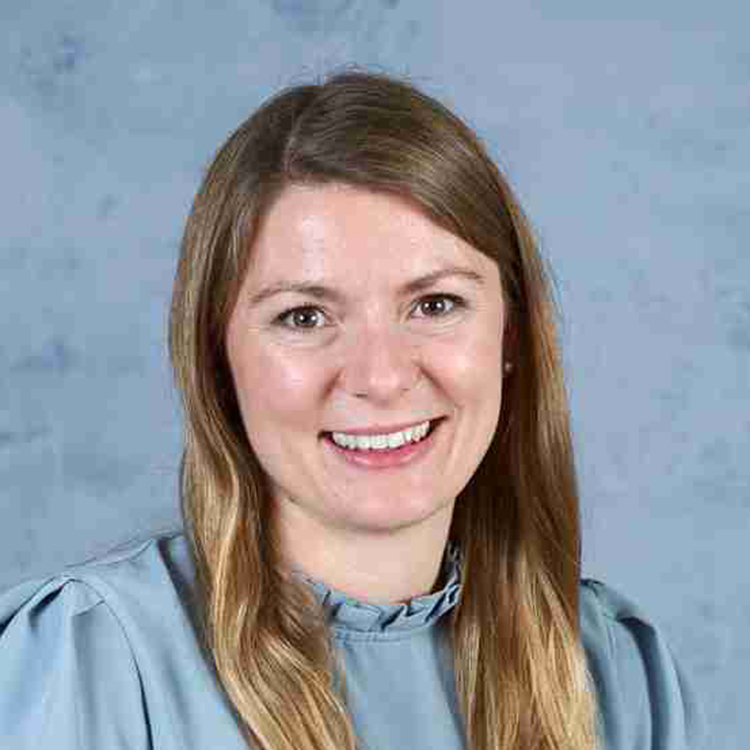
Elizabeth Smith
Program Manager
PhD, MSc, BSc
elizabeth.smith@thekids.org.au
+61 8 6319 1178
Dr Smith is a Respiratory and Sleep Physiologist and Program Manager within the Foundations of Lung Disease team at The Kids Research Institute Australia. She has over 10 years of experience in clinical research, and for the past 3 years has been performing specialist respiratory testing as part of the Western Australian Lung health in Prematurity (WALHIP) follow-up of young adults born preterm.
Dr Smith supervises the Research Respiratory Laboratory at The Kids overseeing reporting, quality assurance and training of internal and external staff & students. In addition to her role in the laboratory, Dr Smith prepares grant submissions. scientific publications, manages team finances & databases and acts as a line manager for junior staff.
Projects
WALHIP Exercise Study
When babies are born early or ‘preterm’ their tiny bodies are put under a lot of stress that can result in health problems in later life.
Preventing perioperative respiratory complications in children with recurrent respiratory symptoms
Predicting long term lung health outcomes in young adults born very preterm (WALHIP 19 year old follow-up)
This study will conduct a detailed lung health assessment in a follow-up of a group of preterm individuals at 19 years of age.
PREDICT CF: Assessing the role of lung clearance index in predicting disease progression in children with cystic fibrosis
There is increasing evidence that the assessment of ventilation distribution using the multiple breath washout (MBW) technique is sensitive to changes in disease status of children with cystic fibrosis.
Published research
MetaNeb Versus Usual Care During Exacerbations of Cystic Fibrosis: An RCT
During exacerbations, when symptom and treatment burden are increased, individuals with cystic fibrosis (CF) are likely to prefer airway clearance techniques (ACTs) that require minimal effort. Therefore, in adults with CF who were hospitalised with an exacerbation, we sought to compare the effect of the MetaNeb with usual ACTs on respiratory function and expectorated sputum.
Delayed airway epithelial repair is correlated with airway obstruction in young adults born very preterm
Nasal epithelial cells from young adults with a history of very preterm birth show delayed closure following scratch-wounding. Repair correlated with lung function, suggesting epithelial barrier integrity may play a role in preterm-associated lung disease.
Prematurity-associated lung disease: is it asthma?
Preterm birth and exercise capacity: what do we currently know?
The long-term cardiopulmonary outcomes following preterm birth during the surfactant era remain unclear. Respiratory symptoms, particularly exertional symptoms, are common in preterm children. Therefore, cardiopulmonary exercise testing may provide insights into the pathophysiology driving exertional respiratory symptoms in those born preterm. This review aims to outline the current knowledge of cardiopulmonary exercise testing in the assessment of children born preterm in the surfactant era.
Oscillometry and spirometry are not interchangeable when assessing the bronchodilator response in children and young adults born preterm
The European Respiratory Society Oscillometry Taskforce identified that clinical correlates of bronchodilator responses are needed to advance oscillometry in clinical practice. The understanding of bronchodilator-induced oscillometry changes in preterm lung disease is poor. Here we describe a comparison of bronchodilator assessments performed using oscillometry and spirometry in a population born very preterm and explore the relationship between bronchodilator-induced changes in respiratory function and clinical outcomes.
Inhaled corticosteroids to improve lung function in children (aged 6–12 years) who were born very preterm (PICSI): a randomised, double-blind, placebo-controlled trial
Despite the substantial burden of lung disease throughout childhood in children who were born very preterm, there are no evidence-based interventions to improve lung health beyond the neonatal period. We tested the hypothesis that inhaled corticosteroid improves lung function in this population.
Risk factors for poorer respiratory outcomes in adolescents and young adults born preterm
The respiratory outcomes for adult survivors of preterm birth in the postsurfactant era are wide-ranging with prognostic factors, especially those encountered after the neonatal period, poorly understood.
Prevalence of chronic respiratory diseases in Aboriginal children: A whole population study
The burden of bronchiectasis is disproportionately high in Aboriginal adults, with early mortality. Bronchiectasis precursors, that is, protracted bacterial bronchitis and chronic suppurative lung disease, often commence in early childhood.
Methods used to evaluate the immediate effects of airway clearance techniques in adults with cystic fibrosis: A systematic review and meta-analysis
This review reports on methods used to evaluate airway clearance techniques (ACT) in adults with CF and examined data for evidence of any effect. Sixty-eight studies described ACT in adequate detail and were included in this review.
Education and Qualifications
- ARTP Practitioner (Distinction) (CRFS equivalent) - Association for Respiratory Technology and Physiology
- NHS Scientist Training Programme – Respiratory and Sleep. Academy for Healthcare Science
- MSc Clinical Science (Distinction) - Manchester Metropolitan University
- PhD, Clinical Medicine Research - Imperial College London
- MSc Molecular Biology and Biotechnology (Distinction) - University of Wales, Bangor
- BSc Biology (First Class) - Sussex University
Awards/Honours
- John Reid Prize – Best Oral Award for Pulmonary Physiology Sleep SIG at TSANZ 2021
- Sue Hazard Award - ARTP Practitioner of the Year - 2018
